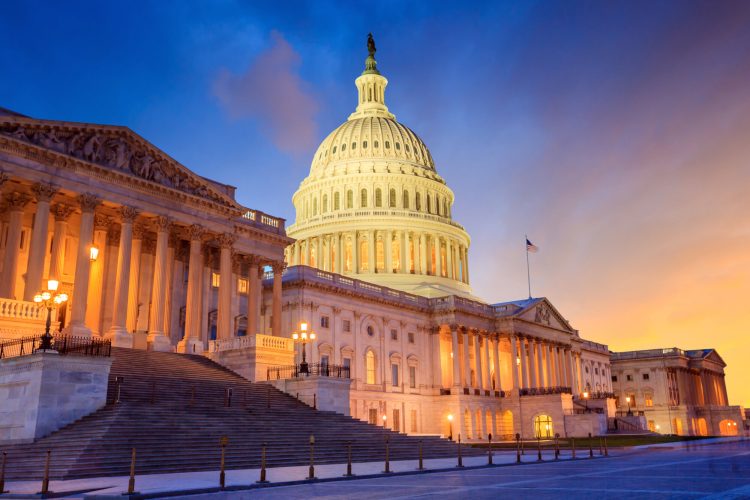On the latest Facing the Future, I was joined by Concord Coalition Executive Director, Bob Bixby, Policy Director, Tori Gorman, and Phil Sletten, senior policy analyst at the New Hampshire Fiscal Policy Institute. We discussed how the most vulnerable populations in New Hampshire have been impacted by the pandemic, why the first budget of a new presidential administration is important and the latest on the Congressional appropriations process, COVID-19 relief and economic data.
[Note: Portions of this week’s Facing the Future can be seen in the video clips posted below.]
Sletten wrote an issue brief on the challenges facing vulnerable populations in New Hampshire during the pandemic and beyond, which you can read here.
In our discussion, he said, “everyone is at some level of increased risk, that’s something associated with this pandemic, but I’ll note that the economic impacts have been particularly widespread. Nearly half of households in New Hampshire reported losing employment income between March 13 and mid-July.”
Individuals that work in lower-wage employment have seen their jobs slow to come back. Individuals and families living where it is difficult to be socially distant, people that work in face-to-face environments, older adults and some minorities are experiencing higher levels of health and financial vulnerability right now, Sletten added.
Sletten also provided context on the size of the vulnerable populations in New Hampshire.
“If we use the poverty definition, then we’re talking about a little under 100,000 people in poverty in New Hampshire,” Sletten said. “So, a little over seven percent of the state’s population.”
“About 10 percent of the population in New Hampshire identifies as something other than “white” and “non-hispanic” for their race or ethnicity,” he said. “And about 19 percent of New Hampshire’s population is over the age of 65.”
He went on to explain the various state and federal programs and forms of relief aimed at helping vulnerable populations, many of which have been bolstered by Congress’ response to the pandemic.
Sletten said New Hampshire was quick to provide income support and ensure that individuals and families were not displaced during the pandemic.
“When the pandemic first struck, the state started to quickly take some actions even before the federal government took some of their largest actions in response to the pandemic,” Sletten said. “Expanded unemployment compensation – making sure that more people were eligible for unemployment and making sure people were eligible for unemployment even if they weren’t able to find work again or weren’t looking at that time – essentially providing income support, as well as a moratorium on foreclosures and evictions.”
“But the federal government’s assistance to states, particularly through the CARES Act coronavirus relief funds, those were really instrumental in permitting the state to expand a lot of its support to health care institutions, to individuals who needed assistance, to businesses, food banks and nonprofits,” he added.
With regard to additional relief to be provided by the state and federal government, some of the areas of focus should be funding health services to protect older adults, especially those living in nursing homes, Sletten said.
“We’ve seen the health impacts be pretty severe in those situations.” he said.
Aid to individuals who have either lost their job or low income individuals is critical in helping those individuals and families and supporting the economy, Sletten added.
“Those dollars are generally put back into the economy in a relatively direct manner,” he said. “And it’s especially important for low income families with children because having children in the picture means there may be childcare costs or duties, and also education duties, that didn’t previously exist that may make it difficult for those individuals to engage in work and be able to provide the support they need for their kids and financial support for the household.”
Bixby and Gorman joined the program to discuss President-elect Joe Biden’s forthcoming, first budget, the appropriations process, COVID-19 relief and recent economic data and trends.
Bixby said, “Every time a new administration comes in, the first budget that they present is usually very important because it can set the tone and legislative agenda for the next four years.”
He added that Biden’s first budget will be especially important because his administration will be facing a health care crisis, an economic crisis, near-term deadlines on important legislation and other long-term fiscal policy challenges.
“He’s got an unusual amount of challenge,” Bixby added. “And he’s going to have to maneuver through a very closely split Congress … there are also pretty significant inter-party divisions within the Democratic party on key policy issues.”
Gorman said that, in recent years, Congress has considered the President’s proposal “dead on arrival,” but the President still wields a lot of influence on the budget process.
On the appropriations process and COVID-19 relief, Gorman said, “We’re not as far along as I think anybody would hope to be at this point.”
“Lawmakers have gone home for Thanksgiving break,” she said. “They’ve only got a couple weeks of legislating before the December 11 appropriations deadline.”
“As far as coronavirus relief, I think that initially there was a plan to sort of wait until the Biden administration was up and running … but it looks like the economy may need a boost or shot in the arm before that happens,” Gorman added.
Jobs and economic data reflect a bit of a recovery from the summer into the fall after a hugely negative second quarter, but Gorman takes issue with relying on those past indicators to craft future policy.
“I see a lot of members of Congress looking at that data and saying, ‘see the economy is on the rebound, we don’t really need to do anything,’ ” she said. “The problem I have with a lot of those statistics is that they are backward looking — the unemployment rate and quarterly economic growth data are backward looking — and where we sit right now, coronavirus cases are exploding around the nation.”
“When you take a look at the data that is released with more frequency, like weekly-initial unemployment claims, you get the picture that economic growth and jobs recovery are slowing down,” she said.
“I think relying on economic data that’s backward looking to drive policy that’s forward looking is very shortsighted,” Gorman added.
Hear more on Facing the Future. I host the program each week on WKXL, NHTalkRadio.com (N.H.), and it is also available via podcast. Join me and my guests as we discuss issues relating to national fiscal policy with budget experts, industry leaders and elected officials. Past broadcasts are available here. You can subscribe to the podcast on Spotify, Pandora, iTunes, Google Play Music or with an RSS feed. Follow Facing the Future on Facebook and watch videos from past episodes on The Concord Coalition YouTube channel.
Continue Reading










